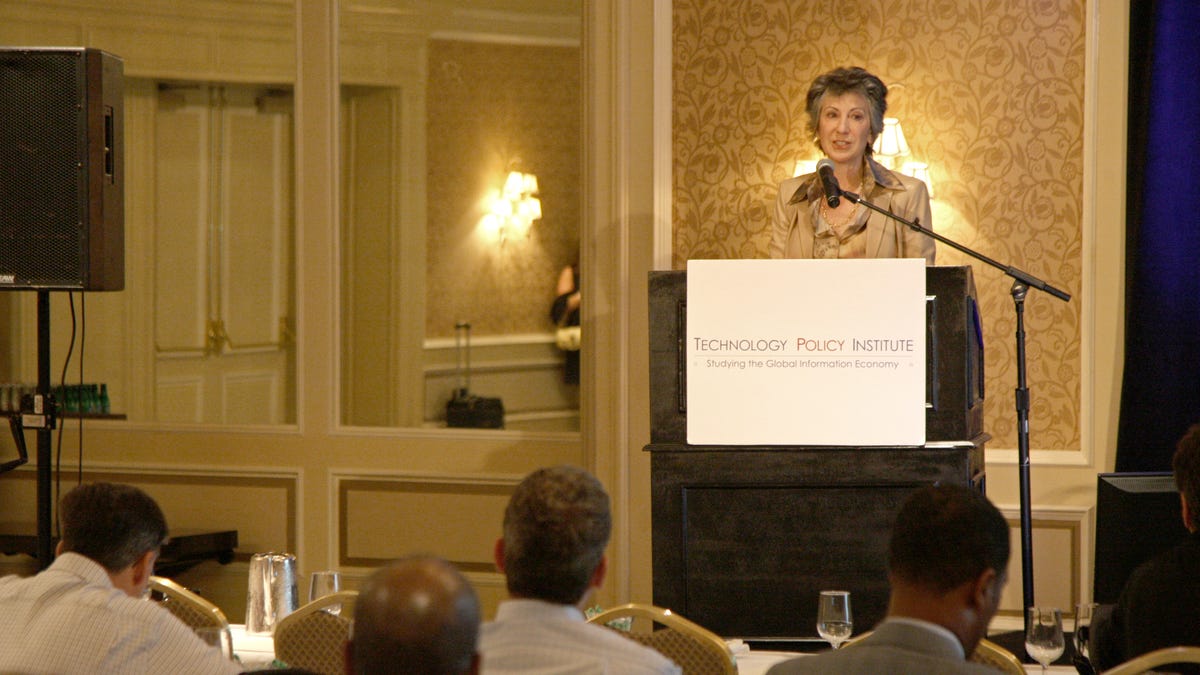Fiorina: Politicians don't care about Silicon Valley
Former HP chief executive Carly Fiorina promises a deregulatory approach toward technology if elected U.S. senator, warning of Net neutrality overreach and saying current politicians don't understand Silicon Valley.

ASPEN, Co.--Carly Fiorina, the former chief executive at Hewlett-Packard, on Monday promised a deregulatory approach toward technology if elected to the U.S. Senate, warning of governmental overreach on Net neutrality and saying that current politicians don't understand what's important to Silicon Valley.
Fiorina, who won the Republican nomination in June, echoed what many technology executives have said for years: America's skilled-worker visa system is so badly broken that "we have to start from scratch," and that too many government policies push jobs overseas instead of making U.S. companies competitive against international rivals.
"We have to put a huge emphasis on attracting the best and the brightest--this is a nation that has always led through immigration," Fiorina told the audience at the Technology Policy Institute's Aspen Forum here. "Our visa system for high skills workers is in disrepair."
In the November election, Fiorina is up against Democratic incumbent Barbara Boxer, who has been in the U.S. Congress for nearly 28 years (CNET voter guide rating: 41 percent).
After the HP board asked her to step down in February 2005, Fiorina began to spend more time in political circles, including stumping for Republican presidential nominee John McCain, reportedly flirting with the idea of running for lieutenant governor, and speaking at the 2008 Republican Party convention in St. Paul, Minn.
During her senatorial campaign, though, she hasn't spent much time stressing what she would (or wouldn't) do on technology topics once in Washington. Her Web site stresses job creation and deficit reduction, not Net neutrality or privacy or copyright.
Here's what she had to say on those and related topics on Monday:
Privacy: Avoid detailed federal regulation of the sort that congressional Democrats have recently proposed. Instead, "let us hold people to those minimum standards and have transparency and innovation drive the rest."
Net neutrality: Opposes a Democratic proposal to regulate broadband providers by "reclassifying" the Internet. "I worry that when regulators say they want to reclassify broadband as a telecom service, we are taking a regulatory structure that was created in the early 20th century and applying it (to the 21st century). Any reclassification of broadband as traditional telecom service is bad public policy."
Patents: "We have to modernize our patent laws. We don't have today strong or predictable intellectual property protection. We have a backlog today of 1.2 million patents...obviously a patent system that was created over a century ago has a hard time keeping up."
R&D tax credit: Congress needs to make the federal R&D tax credit--which expired last year-- permanent. "It has not been renewed. That does not encourage innovation. That does not encourage the creation of jobs in this country."
Copyright: The United States needs to become "far more aggressive in protecting our intellectual property," meaning beginning "tough realistic conversations with the nation of China, which routinely pirates our intellectual property with no consequences."
Congress: "Sometimes, in politics, politicians think the words are all that matters," which means that Silicon Valley's concerns are simply "not a priority for a whole set of representatives who claim to represent the technology community."

